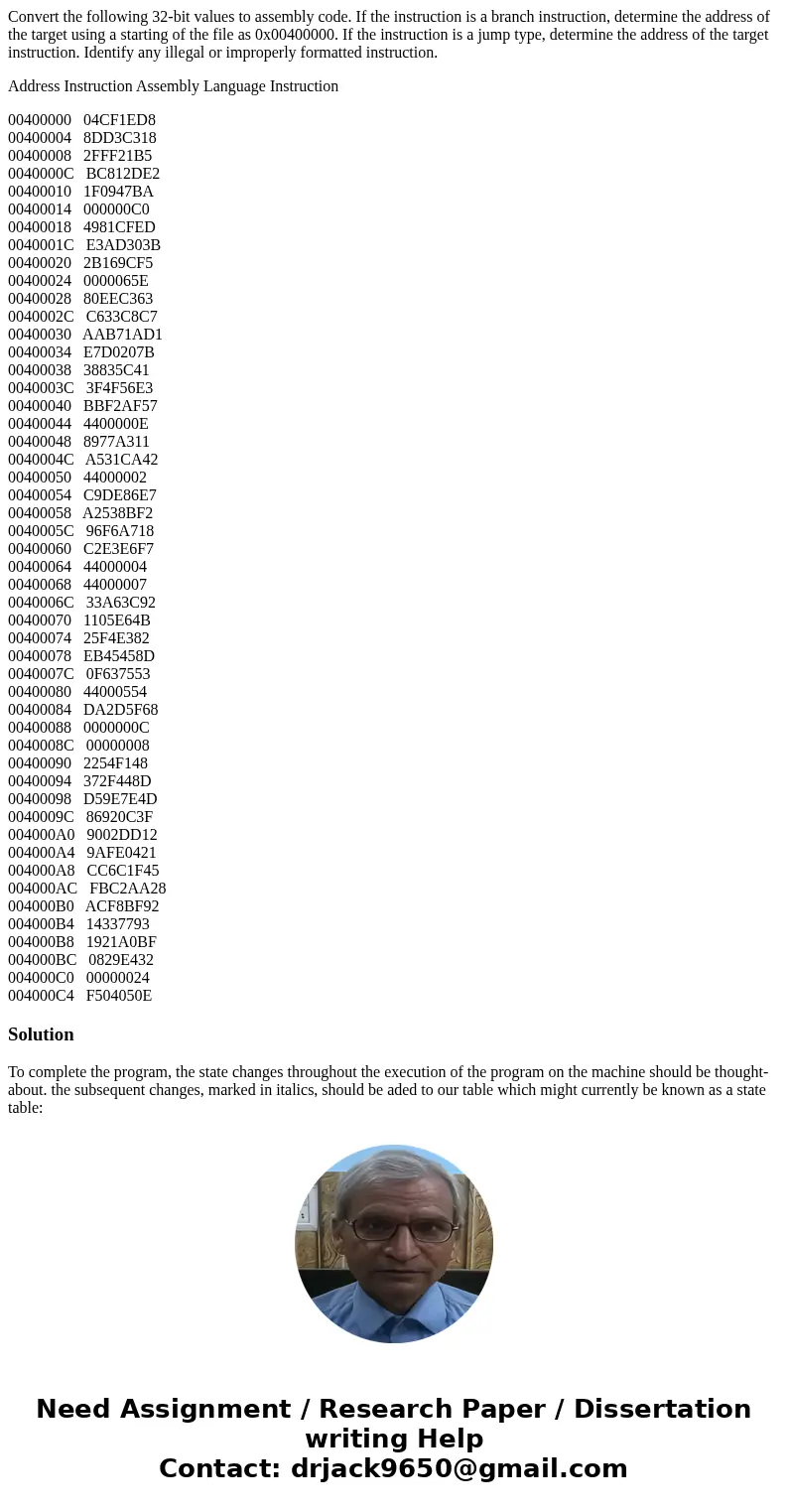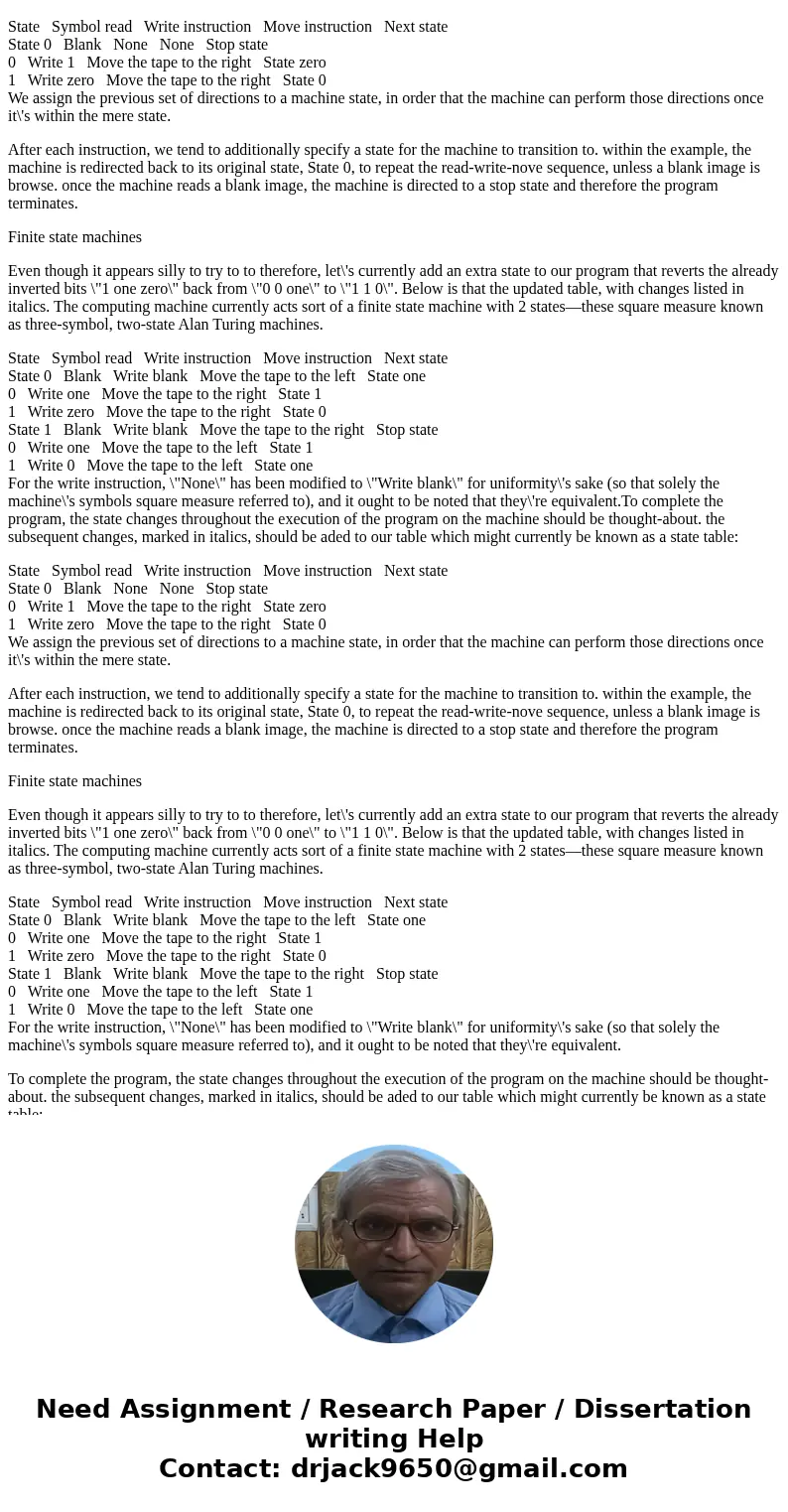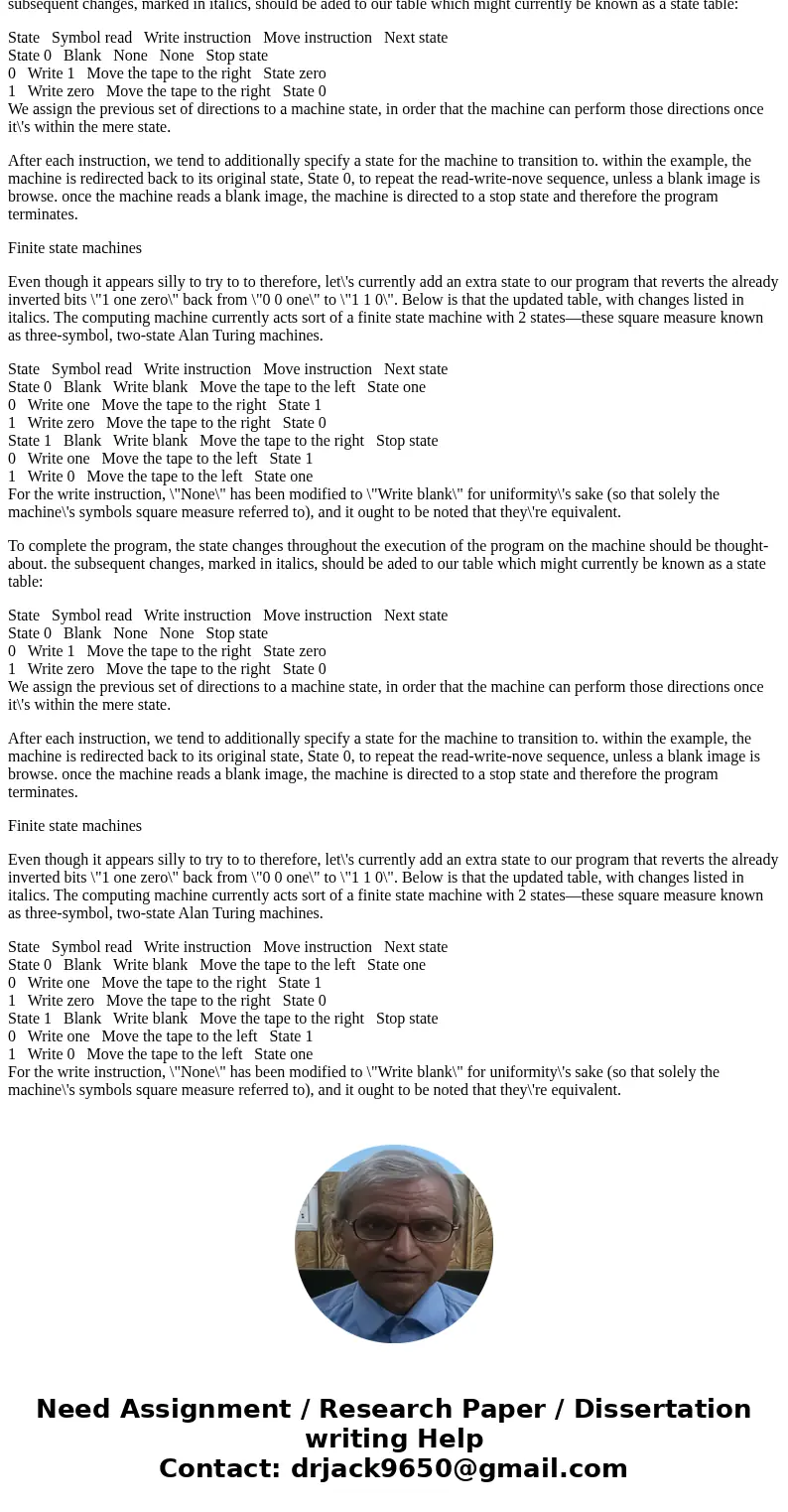Convert the following 32bit values to assembly code If the i
Convert the following 32-bit values to assembly code. If the instruction is a branch instruction, determine the address of the target using a starting of the file as 0x00400000. If the instruction is a jump type, determine the address of the target instruction. Identify any illegal or improperly formatted instruction.
Address Instruction Assembly Language Instruction
00400000 04CF1ED8
00400004 8DD3C318
00400008 2FFF21B5
0040000C BC812DE2
00400010 1F0947BA
00400014 000000C0
00400018 4981CFED
0040001C E3AD303B
00400020 2B169CF5
00400024 0000065E
00400028 80EEC363
0040002C C633C8C7
00400030 AAB71AD1
00400034 E7D0207B
00400038 38835C41
0040003C 3F4F56E3
00400040 BBF2AF57
00400044 4400000E
00400048 8977A311
0040004C A531CA42
00400050 44000002
00400054 C9DE86E7
00400058 A2538BF2
0040005C 96F6A718
00400060 C2E3E6F7
00400064 44000004
00400068 44000007
0040006C 33A63C92
00400070 1105E64B
00400074 25F4E382
00400078 EB45458D
0040007C 0F637553
00400080 44000554
00400084 DA2D5F68
00400088 0000000C
0040008C 00000008
00400090 2254F148
00400094 372F448D
00400098 D59E7E4D
0040009C 86920C3F
004000A0 9002DD12
004000A4 9AFE0421
004000A8 CC6C1F45
004000AC FBC2AA28
004000B0 ACF8BF92
004000B4 14337793
004000B8 1921A0BF
004000BC 0829E432
004000C0 00000024
004000C4 F504050E
Solution
To complete the program, the state changes throughout the execution of the program on the machine should be thought-about. the subsequent changes, marked in italics, should be aded to our table which might currently be known as a state table:
State Symbol read Write instruction Move instruction Next state
State 0 Blank None None Stop state
0 Write 1 Move the tape to the right State zero
1 Write zero Move the tape to the right State 0
We assign the previous set of directions to a machine state, in order that the machine can perform those directions once it\'s within the mere state.
After each instruction, we tend to additionally specify a state for the machine to transition to. within the example, the machine is redirected back to its original state, State 0, to repeat the read-write-nove sequence, unless a blank image is browse. once the machine reads a blank image, the machine is directed to a stop state and therefore the program terminates.
Finite state machines
Even though it appears silly to try to to therefore, let\'s currently add an extra state to our program that reverts the already inverted bits \"1 one zero\" back from \"0 0 one\" to \"1 1 0\". Below is that the updated table, with changes listed in italics. The computing machine currently acts sort of a finite state machine with 2 states—these square measure known as three-symbol, two-state Alan Turing machines.
State Symbol read Write instruction Move instruction Next state
State 0 Blank Write blank Move the tape to the left State one
0 Write one Move the tape to the right State 1
1 Write zero Move the tape to the right State 0
State 1 Blank Write blank Move the tape to the right Stop state
0 Write one Move the tape to the left State 1
1 Write 0 Move the tape to the left State one
For the write instruction, \"None\" has been modified to \"Write blank\" for uniformity\'s sake (so that solely the machine\'s symbols square measure referred to), and it ought to be noted that they\'re equivalent.To complete the program, the state changes throughout the execution of the program on the machine should be thought-about. the subsequent changes, marked in italics, should be aded to our table which might currently be known as a state table:
State Symbol read Write instruction Move instruction Next state
State 0 Blank None None Stop state
0 Write 1 Move the tape to the right State zero
1 Write zero Move the tape to the right State 0
We assign the previous set of directions to a machine state, in order that the machine can perform those directions once it\'s within the mere state.
After each instruction, we tend to additionally specify a state for the machine to transition to. within the example, the machine is redirected back to its original state, State 0, to repeat the read-write-nove sequence, unless a blank image is browse. once the machine reads a blank image, the machine is directed to a stop state and therefore the program terminates.
Finite state machines
Even though it appears silly to try to to therefore, let\'s currently add an extra state to our program that reverts the already inverted bits \"1 one zero\" back from \"0 0 one\" to \"1 1 0\". Below is that the updated table, with changes listed in italics. The computing machine currently acts sort of a finite state machine with 2 states—these square measure known as three-symbol, two-state Alan Turing machines.
State Symbol read Write instruction Move instruction Next state
State 0 Blank Write blank Move the tape to the left State one
0 Write one Move the tape to the right State 1
1 Write zero Move the tape to the right State 0
State 1 Blank Write blank Move the tape to the right Stop state
0 Write one Move the tape to the left State 1
1 Write 0 Move the tape to the left State one
For the write instruction, \"None\" has been modified to \"Write blank\" for uniformity\'s sake (so that solely the machine\'s symbols square measure referred to), and it ought to be noted that they\'re equivalent.
To complete the program, the state changes throughout the execution of the program on the machine should be thought-about. the subsequent changes, marked in italics, should be aded to our table which might currently be known as a state table:
State Symbol read Write instruction Move instruction Next state
State 0 Blank None None Stop state
0 Write 1 Move the tape to the right State zero
1 Write zero Move the tape to the right State 0
We assign the previous set of directions to a machine state, in order that the machine can perform those directions once it\'s within the mere state.
After each instruction, we tend to additionally specify a state for the machine to transition to. within the example, the machine is redirected back to its original state, State 0, to repeat the read-write-nove sequence, unless a blank image is browse. once the machine reads a blank image, the machine is directed to a stop state and therefore the program terminates.
Finite state machines
Even though it appears silly to try to to therefore, let\'s currently add an extra state to our program that reverts the already inverted bits \"1 one zero\" back from \"0 0 one\" to \"1 1 0\". Below is that the updated table, with changes listed in italics. The computing machine currently acts sort of a finite state machine with 2 states—these square measure known as three-symbol, two-state Alan Turing machines.
State Symbol read Write instruction Move instruction Next state
State 0 Blank Write blank Move the tape to the left State one
0 Write one Move the tape to the right State 1
1 Write zero Move the tape to the right State 0
State 1 Blank Write blank Move the tape to the right Stop state
0 Write one Move the tape to the left State 1
1 Write 0 Move the tape to the left State one
For the write instruction, \"None\" has been modified to \"Write blank\" for uniformity\'s sake (so that solely the machine\'s symbols square measure referred to), and it ought to be noted that they\'re equivalent.



 Homework Sourse
Homework Sourse